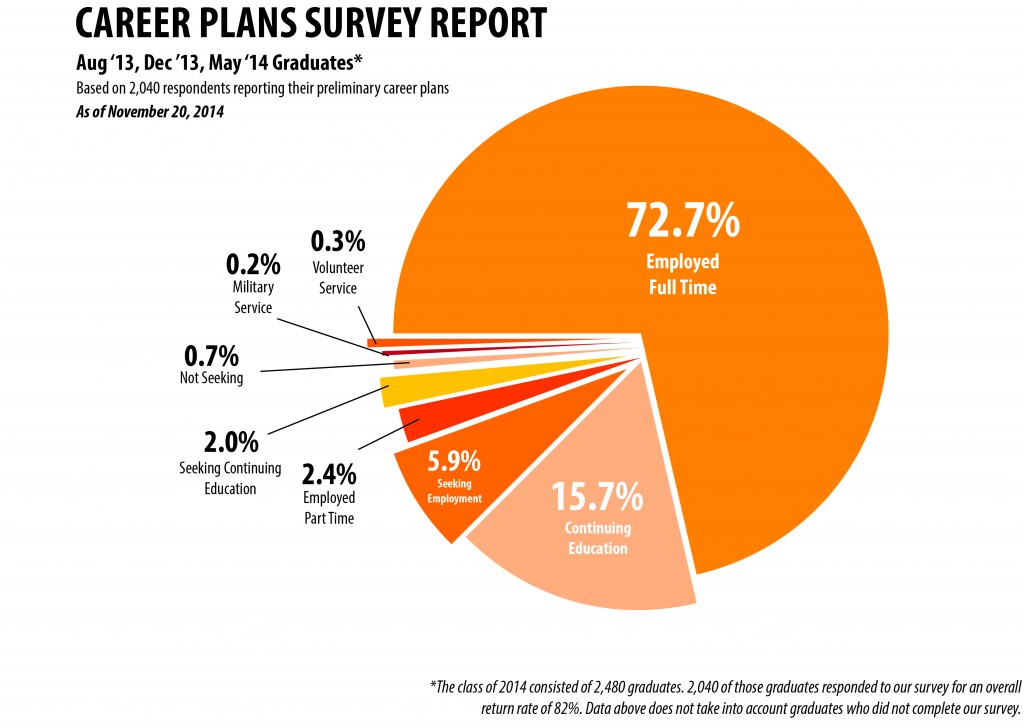Dr. Joseph Barber
If you are adding “career exploration” or “getting a new job” to your growing to-do list for the new and exciting 2015, then you’ll definitely be wanting to do some effective networking to help you on your way. Here are my suggestions for what you can be doing each month to make the most of your time, whilst also appreciating the uniqueness of the changing seasons.
JANUARY
Don’t make New Year’s resolutions. Chances are, if you haven’t been doing something before, hoping that you will do lots of it in the future may not be your best strategy for success. This isn’t true for everything, but think about your past resolutions and try to identify which ones actually worked and why. You might find that the ones that worked were the ones that build on your existing strengths and interests. So, if you don’t feel as if you have done much networking, and you set yourself the goal to “network” in 2015, then you are already creating barriers to success. You are setting this up as doing something that you have never done before. The good news is that you have been networking. You may not have been doing it in a very structured way, but all the people you meet and interact with on a daily basis are part of your network. Your friends and family are your network, and so having conversations with them is actually networking – of a sort. Networking is both seeking information from people (have you ever asked your friends if they know anyone who works in the type of organization you might like to explore?), and sharing it. Your network can’t help you if they don’t know what you are trying to do, or what information you are looking for, or what contact you are seeking. You don’t have to start networking in 2015 (I told you, you are already doing it); instead, you just have to do it in a more targeted and strategic way. Speak with an advisor at Career Services to help you develop this strategy. In the meantime, share information with people in your network about your research or your work. This is a great approach to take in January. The most important part of networking is not meeting new people, but growing effective relationships with people over time.
FEBRUARY
Who knows if we will have a snowy February again, but chances are that it will be cold. The cold months are great for doing some computer work – ideally in front of a roaring fire with a nice cup of hot tea…, but those last two elements aren’t critical. So, in February, I recommend spending some time updating your LinkedIn profile. There are always new features being added, and so Google general advice articles on how to make use of these features to make your LinkedIn profile stand out, and then follow the advice. February is also a good time to update your alumni profile from your previous institutions. You can do this at Penn through QuakerNet, and it is likely that many of your previous institutions have similar searchable databases. Perhaps you can offer advice to others following behind you, and this can be a great way to apply some of your broadly transferable skills that might be relevant to your future career. February is also a big career fair month, and career fairs are great networking and career exploration events even if you are currently not looking for an internship or a job.
MARCH
There are a few more career fairs in March, and by the time these roll around you should be an expert in the art of doing background research into the employers attending these events, coming up with some great questions for the representatives, sharing your own narrative in a way that makes you interesting and relevant to the people you will be talking to, and following up after the event to keep the conversation going. If you have questions about these different steps, then come and see an advisor at Career Services.
APRIL
Ahhhh…, spring time. It is so beautiful, and yet so horribly annoying with all of that pollen that starts off the period of snotty sneeziness. If your allergies are keeping you down, then stay out of the pollen by working on some online research into the various organizations you have been thinking about. Follow them on LinkedIn. Find news articles about the projects they are involved with. Create a list of relevant job titles that interest you at each organization. List the skills required to be successful in these roles (job announcements can help you with these). Find people to talk to who are doing the job that you might possibly be interested in doing in the future – these people will be the best resource for researching these roles. Make sure you capture all of the information above in some type of networking database. There are probably lots of apps for this, but a good, old fashioned, Excel spreadsheet will do just fine. By writing this information down, you can see more clearly the great progress you will be making.
MAY
By the end of May, those of you still at Penn will have finished exams and capped off another semester. Make sure that you add new courses or experiences into a master version of your resume or CV, so that you don’t forget what you have done. You will also want to add some of these new experiences into the narrative you use to describe yourself to others – so make sure you practice this. Some of your may be graduating, and this is a great time to reconnect with the contacts you have at Penn – whether they are staff, faculty, or your peers. Swap contact information, update people on your next steps, agree to get back in contact regularly, and make sure to thank everyone who has played a part in your journey.
JUNE
How time is flying! The summer months are great for getting out and connecting with people in person, if you can. In-person interactions will always make the greatest impression – especially if you have been practicing how to talk about yourself to different types of people. In every interaction you have, listen to how people talk about their jobs and their skills – this is the language you will want to use to talk about your own experiences when applying for these types of positions. And don’t forget to ask everyone you meet if they know of anyone else who might be good for you to contact.
JULY
Even a BBQ party can be a networking event. Of course, you don’t want to make a relaxing pool party all about you and your career exploration or job search. However, keep your ears open as people talk about their current roles, ask some interested questions, and then perhaps follow-up afterwards if you want to ask some more detailed questions. People meet all sorts of interesting people at informal parties (their future partners, their future bosses, their future mentors, or just people who can share helpful information).
AUGUST
By the end of this month, the new recruiting cycle for many different types of career fields begins to fire up. You should do research into the hiring patterns of career fields you are interested in so that you know what to expect. Are they cyclical (with hiring for the next summer happening in September, for example), or “as needed” (the jobs are advertised when there is an opening or funding – whenever that is)? Think about what you have found out about different career options over the course of the summer, and ask yourself whether this is going to change the strategy you are following. Have you narrowed down your career options or expanded them? Take a look over your networking database – you might have quite the sprawling Excel table by now. Are there any obvious gaps in your information or contacts? If so, think about how you might fill them over the course of the next semester.
SEPTEMBER
This is another very busy career fair month. I am worn out just thinking about it. Don’t put too much pressure on yourself to speak with every single employer at these events, if you attend them. You definitely won’t’ be interested in all of them. It is fine to just be interested in 2 employers at a career fair even if there are 100 organizations registered. The conversations you have with representatives from those two companies might be really helpful. If they are not the right people to answer your questions (perhaps they are recruiters for undergraduates, and you are a postdoc), then take their business cards and follow-up with them after the fair to see if they can connect you with the right people. Don’t forget to update you networking database with new employer names, contacts, and relevant skills. If you find out (from several connections), that a certain job type or industry isn’t going to be a good fit for you, then don’t feel bad about closing that particular door and focusing your efforts elsewhere. It is important to trust your feelings – but only once you have done some pretty extensive research into that career field. That means lots of online research and several informational interviews.
OCTOBER
Networking is a very organic process, and the networking approach you use doesn’t have to look exactly like the networking approach used by others. The outcomes from your networking should look much the same, but the ways you can achieve those goals can be different. If you are interested in identifying what natural skills and inclinations you have that might help you develop the best networking strategy, then consider taking a skills assessment tool like StrengthsQuest. There are several of these tools that can give you helpful insights into who you are. If nothing else, they can give you good language that you can use to describe your greatest strengths as you talk about yourself to others.
NOVEMBER
If you haven’t followed up with people you met in the first half of the year, then now is a good time to reconnect with them. Perhaps you can update them on what you did with their advice, or who you met with based on their recommendations, or what else you have found out about their career field. Perhaps you can ask them a follow-up question. In some cases, just taking a moment to thank them for their insight, and then telling them how it was helpful is all you need to do.
DECEMBER
And here we are again. It is December. Well…, the December of the future. Many people get to spend some time in December with family and friends. Yes, you might have to tell your Aunt what it is you are studying and why…, again. However, do so with positive enthusiasm. Don’t forget – you don’t know who your aunt knows, and if you can explain some of your future career goals to her, then she might just surprise you by telling you that she happens to know that her friend through her volunteer group knows a great hairdresser whose is married to man who works at the bank whose brother is the program manager of that organization that you have been desperately trying to connect with.
 Career Services will be closed from 12 noon on Wednesday, December 24th until 9am on Monday, January 5, 2015.
Career Services will be closed from 12 noon on Wednesday, December 24th until 9am on Monday, January 5, 2015.

